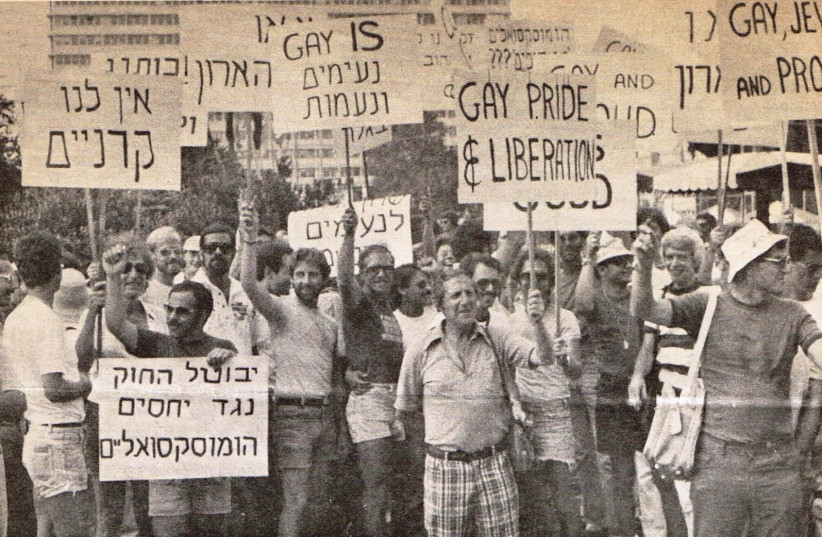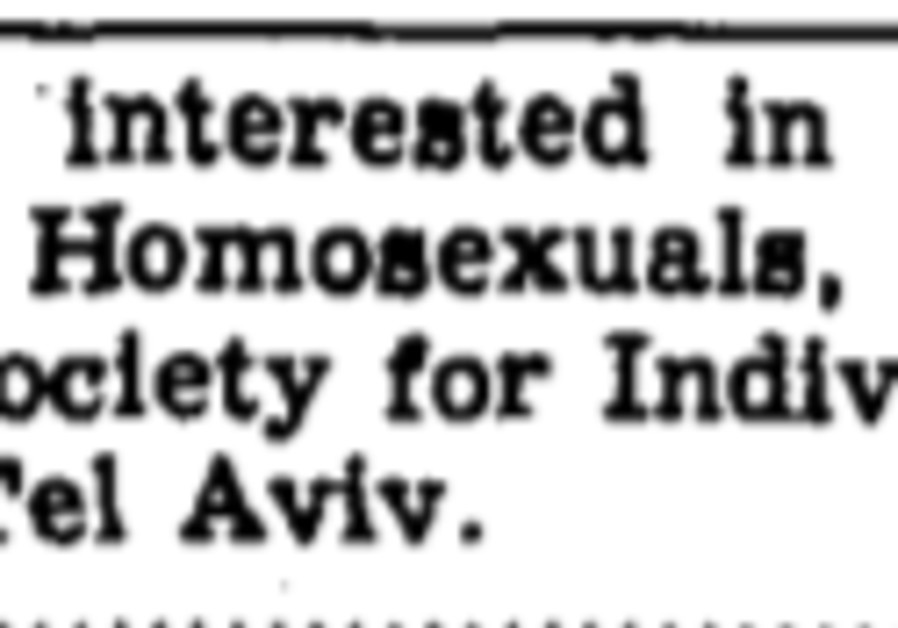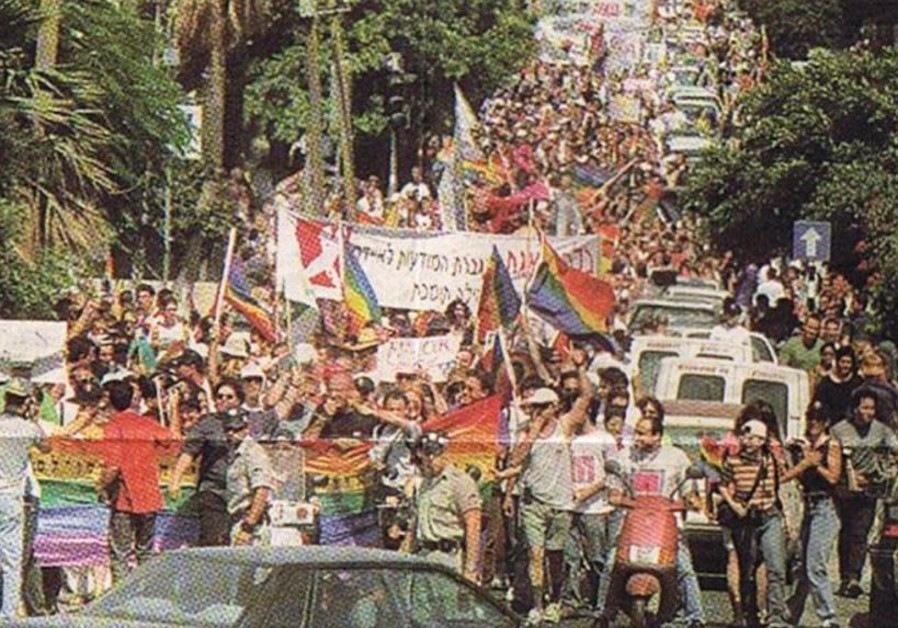 Maciej Świrski (Fot. Dawid Żuchowicz / Agencja Gazeta)
Maciej Świrski (Fot. Dawid Żuchowicz / Agencja Gazeta)
 Dopaść naukowców od Holocaustu. Reduta Dobrego Imienia ściga za książkę “Dalej jest noc”
Dopaść naukowców od Holocaustu. Reduta Dobrego Imienia ściga za książkę “Dalej jest noc”
Wojciech Czuchnowski
Gdy nie udało się przemilczeć książek badaczy Zagłady w Polsce, postanowiono zrobić z nich kłamców i fałszerzy. Do akcji ruszył cały aparat państwa PiS i wspierane przez niego organizacje. Poligonem doświadczalnym ma być proces o książkę “Dalej jest noc”.
.
Na ławie oskarżonych zasiedli profesorowie Barbara Engelking i Jan Grabowski, autorzy dwutomowego dzieła o losach Żydów ukrywających się w czasie wojny w kilku powiatach okupowanej przez Niemców Polski. Powód? W przypisie mieli zniesławić dawnego sołtysa wsi na Podlasiu. Wyrok ma zapaść 9 lutego.
Polowanie na Żydów
Ostatnia rozprawa odbyła się 12 stycznia. O jej przebiegu na żywo informował Maciej Świrski, przewodniczący rady nadzorczej PAP, prezes i założyciel Reduty Dobrego Imienia, były wiceszef Polskiej Fundacji Narodowej. To jedna z prawicowych fundacji, która wspiera przyjętą przez PiS wizję “polityki historycznej” i jest obficie dotowana przez państwo. W jej ujęciu podczas wojny Polacy byli niemal wyłącznie ofiarami i bohaterami oraz masowo ratowali skazanych przed Niemcami Żydów. PiS nazywa to walką z “pedagogiką wstydu”.
Ale praktyczne działania władzy sprowadzają się do dyskredytowania naukowców pokazujących niewygodną prawdę. Jednym z głównych ośrodków niezależnych prac jest Centrum Badań nad Zagładą Żydów przy Polskiej Akademii Nauk. Przez lata powstało tam wiele opracowań ujawniających wstrząsające fakty o udziale sporej części polskiego społeczeństwa w Holocauście. Na podstawie powojennych dokumentów i relacji świadków autorzy pokazali aktywny udział Polaków w mordowaniu Żydów co najmniej od roku 1943, gdy Niemcy zlikwidowali getta i przystąpili do “ostatecznego rozwiązania”, wywożąc mieszkańców do obozów zagłady. Ok. 300 tys. mieszkańców gett zdołało wtedy uciec. I to na nich urządzano polowania. Brali w nich udział, całkiem dobrowolnie, także Polacy. Prof. Grabowski szacuje, że z rąk mieszkańców zginęło – bezpośrednio lub przez denuncjację do władz niemieckich – ok. 200 tys. Żydów.
Początkowo książki i opracowania Centrum były przez wspierające władzę media oraz instytucje państwa PiS niezauważane. Ale publikacji “Dalej jest noc” nie dało się już przemilczeć. To drobiazgowe i obszerne opisy tysięcy przypadków, z których tylko niewiele dobrze świadczy o postawach Polaków. Jeden z takich przypadków jest właśnie tematem kończącego się procesu. Wyrok będzie miał wpływ na wolność badań naukowych w Polsce, ale też na wizerunek naszego kraju w środowiskach historyków na całym świecie.
Na czarnej liście MSZ
12 stycznia, w trakcie ostatniej rozprawy, Maciej Świrski zaciekle tweetował – opublikował ponad 40 wpisów na swoim koncie. Zadbał też, by o sprawie obszernie informował PAP. Prezes RDI jest tam przewodniczącym rady nadzorczej. – Do nas dziennikarze PAP już nawet nie dzwonili, to zresztą reguła. Prorządowe media, pisząc swoje relacje, nie próbują się z nami skontaktować ani nie publikują naszych argumentów – mówi „Wyborczej” prof. Grabowski. – Chwilami przypomina mi się nagonka władz PRL na naukowców w 1968 r. Te same metody, ta sama retoryka. Chodzi o to, żeby nas zdyskredytować i zastraszyć – dodaje. Mówi, że przestał już czytać publikacje na swój temat. – Gdy ktoś znajomy informuje mnie o kolejnych rewelacjach o mnie, mojej rodzinie i pochodzeniu, proszę, żeby przestał. Nie chcę już tego słuchać.
– Rok temu zostałem zaproszony do parlamentu Szwecji, by wygłosić krótkie przemówienie na temat moich badań i Holocaustu. Po spotkaniu poprosiła mnie o rozmowę Ann Linde, szefowa MSZ tego kraju. Powiedziała, że dostała z polskiego MSZ list na mój temat wzywający do odwołania mojego wystąpienia – wspomina Grabowski.
Instrukcje, by reagować na zagraniczne wykłady Grabowskiego, Engelking, Jana Tomasza Grossa i innych niezależnych historyków, MSZ rozesłał do wszystkich polskich ambasad.
To tylko część akcji. W 2019 r. do rektora Uniwersytetu w Ottawie (Kanada), gdzie Grabowski ma stały etat, przesłano list oskarżający Grabowskiego o fałszowanie historii Zagłady i żądający zwolnienia go z pracy. Nadawca: Reduta Dobrego Imienia. Do ataków na Grabowskiego przyłączył się też IPN.
“Zniesławili bohatera”
Formalnie autorów książki oskarża 80-letnia Filomena Leszczyńska ze wsi Malinowo w woj. podlaskim. Zarzuca naukowcom, że w książce „zniesławili pamięć” jej stryja Edwarda Malinowskiego, który w czasie wojny był w Malinowie sołtysem. Naprawdę za pozwem stoi Reduta i Świrski. To on odnalazł Leszczyńską, namówił ją do wniesienia pozwu i załatwił finansowanie prawników. W sierpniu 2020 r. Leszczyńska przesłuchana przez sąd mówiła, że o tym, że sprawa jej stryja znalazła się w książce, “usłyszała przez radio” i “że dzwonili do niej potem ludzie z różnych stron”. Zapewniała, że “stryj był dobrym człowiekiem” i “ratował Żydów”.
W całej sprawie chodzi o liczący zaledwie kilka linijek fragment ze strony 157. To właśnie on dotyczy sołtysa Malinowskiego: “Estera Drogicka (z domu Siemiatycka) po stracie rodziny, tu zaopatrzona w dokumenty kupione od Białorusinki, postanowiła wyjechać do Prus na roboty, w czym pomógł jej sołtys Malinowa Edward Malinowski (przy okazji ją ograbił) — i w grudniu 1942 r. trafiła do Rastenburga (Kętrzyna) jako pomoc domowa w niemieckiej rodzinie Fittkau. Nie tylko poznała tam swojego drugiego męża (Polaka, który także był na robotach), lecz rozwinęła działalność handlową, przesyłając Malinowskiemu paczki z rzeczami na sprzedaż. Odwiedziła go, gdy jechała na urlop >do domu<. Zdawała sobie sprawę, że jest on współwinny śmierci kilkudziesięciu Żydów, którzy ukrywali się w lesie i zostali wydani Niemcom, mimo to na jego procesie po wojnie złożyła fałszywe zeznania w jego obronie”. W przypisach prof. Engelking podaje, że po wojnie Drogicka zeznawała w procesie Malinowskiego na korzyść sołtysa.
Opowieść z Malinowa to jedna z tysięcy opisanych w książce.
W pozwie czytamy, że przedstawiona w „Dalej jest noc” historia krewnego Filomeny Leszczyńskiej jest kłamstwem, narusza jej dobra osobiste: „prawo do kultu pamięci o osobie zmarłej”, „prawo do dumy i tożsamości narodowej”, „prawo do niezakłamywanej historii II wojny światowej”, „prawo do nienaruszania czci”, „prawo do otrzymywania rzetelnych informacji z opłacanych przez nią badań historycznych”. Uzasadnienie: przynależność Leszczyńskiej do grupy etnicznej (narodu polskiego) i fakt, że jest siostrzenicą Edwarda Malinowskiego.
Częścią pozwu jest też żądanie przeprosin, w tym przyznanie przez autorów, że celem pracy było oskarżenie Polaków o mordowanie Żydów (miałoby się ukazać m.in. w „Wyborczej”). – W pozwie Filomena Leszczyńska żąda przeprosin za nieprawdziwe oskarżenie jej stryja Polaka i celowe dołączenie jego zmanipulowanej historii do tezy, że Polacy mordowali Żydów – relacjonuje Świrski na stronie RDI.
Gdyby badacze zgodzili się z tezami pozwu, musieliby w przeprosinach napisać m.in., że działali celowo i z premedytacją. Mieliby też zapłacić 100 tys. zł odszkodowania.
Autorzy pozwu przeciwko naukowcom swoje stwierdzenia opierają na tym, że po wojnie sołtys Malinowski został uniewinniony przez sąd od zarzutu udziału w mordowaniu Żydów. Na jego korzyść zeznawało m.in. troje świadków ocalałych z Zagłady. “Pozew ma na celu obronę kultu pamięci o zmarłym Edwardzie Malinowskim, który chronił Żydów w trakcie wojny. I który był bohaterem, i jako bohater powinien być zapamiętany i postrzegany tak przez swoją bratanicę, jak i przez swoich przyjaciół, znajomych czy współczesnych Polaków” – podkreśla Świrski. Jak twierdzi, “treści, które znalazły się w publikacji >Dalej jest noc<, zostały wręcz wymyślone”, a “skandaliczne zachowanie autorów publikacji ma na celu potwierdzenie tez o zabijaniu Żydów przez Polaków. Nazwisko Edwarda Malinowskiego, w publikacji Grabowskiego i Engelking, poprzez nazwanie go de facto złodziejem i mordercą zostało zbrukane. Malinowski niewątpliwie był bohaterem i udowodnimy to w sądzie”.
“Ty żydówka, ty nie możesz żyć…”
Tyle że prof. Engelking (wbrew twierdzeniom pozwu) też opierała się na źródłach. Najważniejsze to kilkugodzinna relacja złożona w latach 90. przez Esterę Drogicką w Shoah Foundation. Oto fragment na temat Malinowskiego: “Biegłam z tego lasu z tego miejsca to trwało pół godziny 7 km albo i więcej. Biegłam przyleciałam do Malinowa. Tam szedł taki mały chłopczyk może 8 lat i on mówi tak, >ty żydówka, ty nie możesz żyć<. Ja się obejrzałam, nic weszłam, pytam gdzie sołtys, weszłam do tego sołtysa Malinowskiego Edwarda, on mnie powiedział, że się tak nazywa. Ja mówię, że ja mam ausweiss, to może ja pojadę do Niemiec [chodziło o to, że sołtysi mogli typować ludzi na roboty do Niemiec]. A on mówi: czy ty wyniosłaś coś z getta. Ja mówię, no buty, sukienkę, haftowaną bluzkę i pościel, wszystko jemu wyliczam, a on mówi, że pojedzie po to. Miałam bardzo ładny sweter to mi zabrał i dał mi swojej zony taki byle jaki sweter, miałam spód jedwabny to też mi zabrał, miałam jeszcze 100 marek to mi zabrał 50”.
Z relacji Drogickiej wynika, że sołtys zabrał rzeczy, które schowała u sąsiadów, a jej powiedział, że ich nie znalazł. Potem kobieta mówi, że lesie ukrywało się 22 Żydów z dziećmi. Znalazł ich leśniczy “i razem z Malinowskim poszli na żandarmerię i zabili wszystkich i te dzieci, wszystkich wybili”. Okazało się jednak, że po wojnie, gdy Malinowski został oskarżony o udział w mordzie, Drogicka broniła go na procesie. O tym też wyraźnie pisze w książce Engelking. W swojej relacji Drogicka przyznaje: “Jak się skończyła wojna to on by dostał karę śmierci. Ja jego uratowałam, pomimo, że on bardzo dużo złego zrobił dla mnie, ale no co? To było coś okropnego jak ja musiałam świadczyć, ach jakie ja miałam nieprzyjemności, ale uratowałam go”.
Czemu Drogicka po wojnie zeznawała na korzyść sołtysa? Powodem mógł być strach przed zemstą. Jak czytamy w OKO.press, “w 1949 roku Malinowski został oskarżony przez grupę mieszkańców wsi o różne przestępstwa, w tym o zadawanie się z grupą ‘Jaskółki’. To jeden z ‘wyklętych’, którzy działali w tamtej okolicy. Oskarżono go również o to, że wydał Żydów w 1943 roku. W dwa dni po wyznaczeniu daty rozprawy do Malinowa przyszła grupa ‘Jaskółki’. Sołtys siedział wówczas w areszcie, ale jego żona i syn wskazali tych, którzy podpisali doniesienie. Kilku sąsiadów zostało pobitych, a felczer, który im pomógł, następnego dnia został zabity. Trudno się dziwić, że w czasie procesu świadkowie oskarżenia nie podtrzymali swoich zeznań”. Notatka o zastraszaniu mieszkańców znalazła się w dokumentach Korpusu Bezpieczeństwa Wewnętrznego MSW. To kolejny dokument o tych wydarzeniach.
Na procesie naukowcy mówili, że są skazani na przytaczanie źródeł, bo po upływie prawie 80 lat trudno o świadków. Zwracali uwagę, że wojenne i powojenne losy bohaterów książki były skomplikowane.
– Estera zeznawała na korzyść sołtysa w tym procesie. Myślę, że mimo iż miała o nim niezbyt dobre zdanie, chciała mu oddać przysługę i okazać wdzięczność za uratowanie życia – opowiadała prof. Engelking. Jej zdaniem Malinowski “nie był ani bohaterem, ani szmalcownikiem, był pomiędzy. W czasie okupacji wiele było takich złożonych sytuacji. Ja nie napisałam, że uważam, że wydał Żydów. Relacjonowałam opinię świadka”. Tak samo badaczka zeznawała na procesie.
“Wydalić ich bo plują na Polaków”
Niemal każdej rozprawie w procesie przeciwko naukowcom towarzyszy propagandowa kanonada prawicowych mediów. Engelking i Grabowski nazywani są tam “fałszerzami, którzy z bohatera zrobili szmalcownika”. Ale najbardziej przygnębiające są dostępne pod tekstami wPolityce.pl, Frondy czy TVP Info wpisy czytelników. Rzeczywiście przywołują atmosferę nagonki z marca 1968 r.
“Trzeba wprowadzić instytucje infamii i wywalac z kraju tych co pluja na Polske i Polakow”.
“Żydzi fałszują historię. Kto ich będzie jeszcze ukrywał?”.
“Polaków pochodzenia żydowskiego, którzy nie są lojalni wobec RP, oskarżają nas o zamordowanie więcej Żydów niż Niemcy, posądzają o antysemityzm doradzam wyjazd z Polski niech się nie męczą u nas!”.
“WYRZUCIC TA CHOLOTE ZYDOWSKA Z POLSKI”.
“ILE PIENIĘDZY polskich podatników dostają pani Engelking i pan Grabowski”.
“Jan Grabowski po matce jest żydem! Chciałam poznać jego życiorys, na wiki jest tylko nazwisko ojca, słowa o matce, ale gdzie indziej znalazłam jego matkę”.
“Jan Grabowski Abrahamer herbu menora. Nazwiska na polsko brzmiące zmieniali tylko wybrani tzw. utrwalacze władzy ludowej w PRL (1944-1956). Byli to głównie specjaliści, od zrywania żywcem paznokci, łamacze palców i kości, wybijacze zębów i wyjątkowi sadyści, twórcy i funkcjonariusze komunistycznego aparatu terroru (MBP, WUB, PUB, KBW, WSW). Normalni ludzie nie mieli potrzeby maskowania, bo ich ręce nie były umazane krwią elit niepodległościowych tak jak oprawców. Grabowscy to polska szlachta herbu topór, a ten tam powyżej to pierwszorzędny konsument czosnku i cebuli”.
“Jeśli Grabowski pozostanie profesorem PAN, to PAN musi być rozwiązany. Nie jest naukowcem ale rosyjskim agentem wpływu sterowanym przez Izrael”.
“Żydzi atakują Polskę za pomocą kłamstw, pomówień i V kolumny w Polsce”.
“Grabowski, żyd atakuje Polskę w ordynarny sposób. Jak nie być antysemitą?”.
“Grabowski – profesor prożydowski”.
“Tytuł profesora dali mu jemu podobni Żydzi komuniści od Stalina. Zabrać temu łgarzowi obywatelstwo”.
“Jak naprawdę nazywa się ten Grabowski i dlaczego jest bezkarny?”.
“Podajcie prawdziwe nazwisko tego’ Polaka’ bo większość kryje się pod pięknymi polskimi nazwiskami”.
“Takich ładować w bydlęce wagony i wysyłać tam, gdzie ich miejsce, na wschód”.
“Żyd chory z nienawiści do Polaków, jako polski naukowiec pluje na polski naród i zakłamuje historię. My mu płacimy a on nas szkaluje i plugawi nasz naród”.
“Dlaczego zydzi zmieniaja sobie nazwiska? wstydza sie swoich, czy raczej maja co innego w planach?”.
“Maski tych żydowskich ‘badaczy’ już dawno opadły. Nie chodzi o ŻADNĄ historię, lecz o postawienie nas, Polaków, pod ścianą, za którą są góry dolarów odszkodowań za mienie pożydowskie. Im też kapnie!”.
“Marzy nam się Turcja i Erdogan. Przydałby się u nas Wtedy ta uczona n zgraja przypomniała by sobie, że są Polakami”.
“Mordechaj Grabowski znów pitoli. Odwieźcie go do granicy i pomóżcie kopniakiem w jej przekroczeniu”.
Zawartość publikowanych artykułów i materiałów nie reprezentuje poglądów ani opinii Reunion’68,
ani też webmastera Blogu Reunion’68, chyba ze jest to wyraźnie zaznaczone.
Twoje uwagi, linki, własne artykuły lub wiadomości prześlij na adres:
webmaster@reunion68.com







